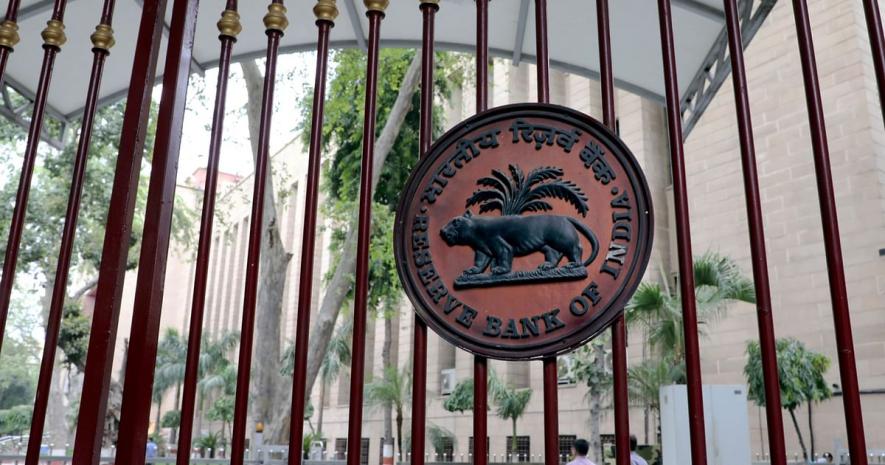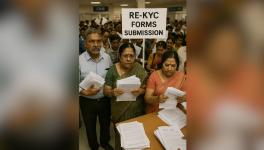Banks’ Gross NPAs May Rise to 14.7% Due to COVID-19 Pandemic: RBI

Image Courtesy: BloombergQuint
The gross non-performing assets (GNPA) of scheduled commercial banks (SCBs) may escalate to 14.7% by the end of this financial year, if the adverse economic impact of the COVID-19 pandemic is ‘very severe’, predicts the Reserve Bank of India in its financial stability report released on Friday, July 24.
“Macro stress tests for credit risk indicate that the GNPA ratio of all SCBs may increase from 8.5% in March 2020 to 12.5% by March 2021 under the baseline scenario. If the macroeconomic environment worsens further, the ratio may escalate to 14.7% under very severe stress,” noted the RBI.
The central bank revealed that the GNPA and net non-performing asset (NNPA) ratios of all SCBs have come down to 8.5% and 3.0% from 9.3% and 3.7% in September 2019. This decline in NPA levels covers the impacts of the loan moratorium that came into effect from March 1, announced by the RBI under its COVID-19 relief measures. According to the central bank, nearly half of the customers accounting for around half of outstanding bank loans opted to avail the benefit of the moratorium.
The financial stability report pointed out that the NPA formations are rising among small category borrowers whereas, large borrowers (who has aggregate exposure of Rs 5 crore and above) of banks accounted for 51.3% of the aggregate loan portfolio and 78.3% GNPAs, in March 2020.
“Both these shares have declined since March 2018 implying that, on an incremental basis, credit and NPA accretions are occurring in the small borrower category in the recent period,” noted the report.
NBFCs and HFCs
Non-banking Financial Companies (NBFCs) and Housing Financial Companies (HFCs) are the largest borrowers in the country’s financial system. According to the RBI, as on March 31, 2019, the total assets of NBFCs and HFCs was Rs 44.4 lakh crore (NBFCs: 70%, HFCs 30%). This is nearly one-fourth the size of the assets of the SCBs (Rs 166 lakh crore).
Also read: NBFCs Debt Worth Rs 1.7 lakh Crore at Risk, Warns Crisil Rating
At the end-March 2020, NBFCs reported gross payables of Rs 8.84 lakh crore and gross receivables of Rs 0.89 lakh crore from banks and financial institutions. HFCs, the second largest borrowers after NBFCs, reported gross payables of around Rs 5.91 lakh crore and gross receivables of Rs 0.45 lakh crore at the end of 2019-20.
Systematic Risk Survey
According to the RBI’s systemic risk survey, all major risk groups, such as global risks, risk perceptions on macroeconomic conditions, financial market risks and institutional positions were perceived as ‘high’, affecting the financial system. The regulator conducted the survey during April-May 2020 to capture the perceptions of experts, including market participants, on the major risks faced by the financial system amid the pandemic.
“Among macroeconomic risks, risks to domestic growth and fiscal housekeeping were perceived to be ‘very high’, while risks on account of reversal/slowdown in capital flows, corporate sector vulnerabilities, real estate prices and household savings were perceived to be ‘high’,” found the survey.
The effects of COVID-19 are likely to remain for 3-5 years, opined the participants of the survey, and may impact the quality of credit in the books of banks, the general risk taking ability of entrepreneurs, investments in capital markets and real estate, and the saving pattern of households. All these could have an impact on domestic financial stability.
The survey also found that three sectors -- tourism and hospitality; construction and real estate; and aviation -- have been adversely affected by the COVID-19 pandemic. “Their prospects of recovery in the next six months appear bleak. A majority of the respondents opined that higher emphasis on localisation will take precedence over globalisation, going forward, and more regional trade pacts would be preferred,” noted the bankers.
Get the latest reports & analysis with people's perspective on Protests, movements & deep analytical videos, discussions of the current affairs in your Telegram app. Subscribe to NewsClick's Telegram channel & get Real-Time updates on stories, as they get published on our website.
























